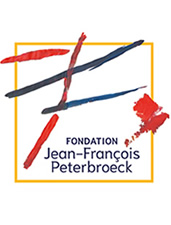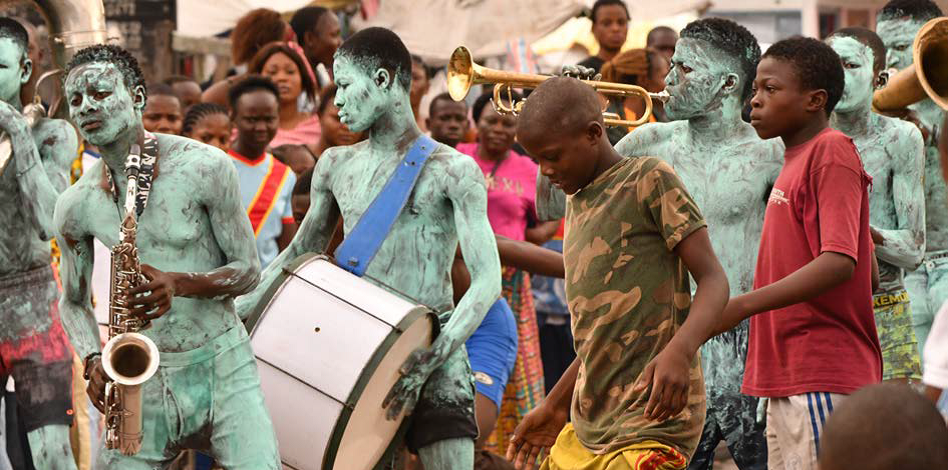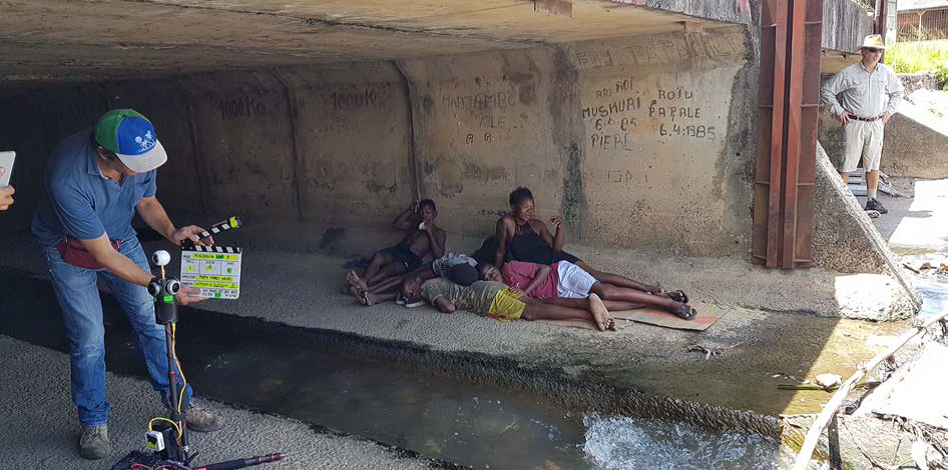Context
In the large cities of the DRC, the problem of street children is very present. 60 to 70% of the children who find themselves in this situation are there as a result of an accusation of witchcraft. There are many reasons for this, but the main one is that they have become too much of a burden for their parents, as their precarious economic situation doesn’t enable them to feed their child.
For the child, the first consequence is the violent environment in which he or she is immersed.
To bear witness to this reality and its importance, Wajnbrosse productions created Kinshasa Now, a 360-degree virtual reality film shot in Kinshasa.
It tells the story of Mika, a 14 years old, who finds himself on the street. The movie helps to understand his daily life.
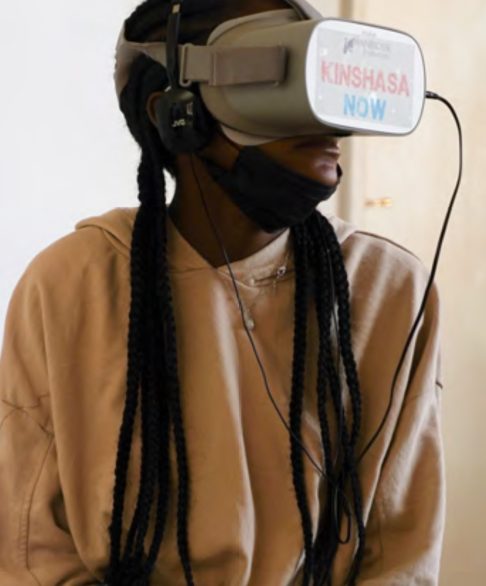
Beneficiaries
The documentary is aimed at all audiences.
A tour was organised in various large cities in the DRC, as well as in various schools in Belgium.
Objective
Le film est une expérience où le spectateur est plongé, grâce à un casque VR (Virtual Reality), au milieu des rues de Kinshasa, où il ressentira les difficultés d’un enfant jeté à la rue. Il se complète de : - un film documentaire sur Chancelvie, une enfant des rues qui partage son parcours, accompagné d’interviews de personnalités impliquées dans le droit des enfants (Denis Mukwege, Boris Cyrulnik, …); - un dossier pédagogique à destination de tous (professeurs, parents, sociologues, éducateurs, …) expliquant les thèmes abordés dans les séquences du film; - une salle en Réalité Virtuelle, équipée d’ordinateurs et de casques, de dossiers pédagogiques qui circulera dans les différentes villes de RDC; - un livre en Réalité Augmentée reprenant les thèmes du film et de nombreuses vidéos (accessibles avec ou sans code QR) visibles sur smartphones et tablettes. Le thème principal de Kinshasa Now est bien sûr le Droit de l’enfant en général il se complète de thèmes secondaires très variés, tels que la famille, l’égalité des genres, la pauvreté, la faim, la religion, les violences faites aux enfants (viol, travail des mineurs,…), les transports, la santé, la corruption, l’économie parallèle, les ressources naturelles, les conflits, la solidarité, la résilience par la musique, le sport, le droit à l’éducation.
Results
The Foundation supported the distribution of the film in Belgian schools as well as through a travelling cinema, in DRC schools, and the finalisation of the documentary about Chancelvie.
Kinshasa Now went on tour in the DRC where it was screened in front of more than 2,500 people, in 20 different places including Kinshasa, Mbuji Mayi, Lubumbashi, … In Belgium, the film was also screened in different schools and was the subject of several public events.
Each screening was followed by a debate to address the issue of street children in more depth.
The film was shown at 25 festivals and won 10 major prizes, which greatly contributed to its dissemination.
Testimonials
JP GODDING _ Director of Center Ndako Ya Biso de Kinshasa
(...)
The new film, Kinshasa Now, is to me truly exceptional in its vision of street children: it is no longer a question of the general context but a question of the lives of these children that are exposed with no external judgement but in a attentive and emphatic manner. In fact, from the start of the film we see the child's stepmother chasing him away as a sorcerer, and then the child arriving in the street with his various attempts to survive: the people who use him for their own purposes, exploiting him or pitying him, all the violence suffered in the street, but also the forms of solidarity and resilience. I also enjoyed the end of the film where young people share their future plans with each other: the one who wants to stay on the street, the one who wants to find his family, the one who wants to study and find a different future... The different hopes are discreetly shared.
The film is shown before any social action with the children and this sense of the problem is well established. It is not your job to appreciate the social work done but to take a fair picture of reality.
I would have loved it if you could have made a film of the same length, but one that could be shown to all audiences without having to look for viewing headsets, which are not always easy to find. I have never yet found a film that so accurately presents the survival conditions of these children on the street, and I think that this film could help us to make our work better understood by our partners
With our best regards to all your good team and thanks again!”
Our actions
Belgium
- # Occupationalintegration
The social farm
Belgium
- # SelfConfidence
Citizenship year to build and be built
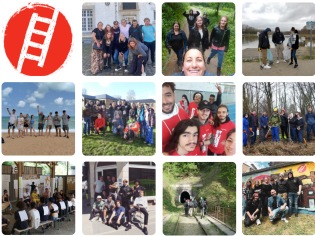
Jordan
- # SelfConfidence
HEALING, RESILIENCE AND PREVENTING EXTREMISM
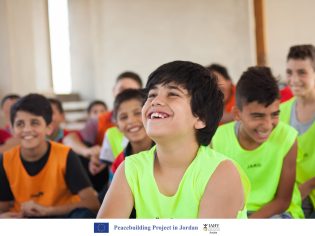
How can you support
our projects?
Support the projects that are close to your heart by making a donation, leaving a legacy or becoming a patron of the Foundation.

